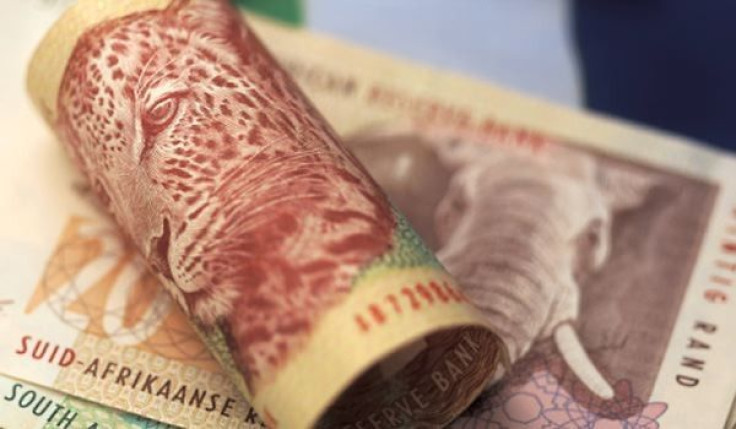S.Africa's rand firms vs dollar, more gains seen

South Africa's rand firmed against the dollar on Thursday as Greek government plans for a referendum on a sovereign bailout appeared to unravel with the expected collapse of the government.
A surprise European Central Bank decision to cut its main interest rate by 25 basis points also improved sentiment towards risky assets.
The rand has been extremely volatile in light of the uncertainties around the Greek debt crisis, which have seen investors vacillate between taking on and dumping risky assets.
On Thursday, it topped the log of 20 emerging market currencies tracked by Reuters just a few days after being one of the worst performers.
It gained as much as 2.2 two percent, hitting a session high of 7.8250. By 1525 GMT, it was trading at 7.8665, 1.7 percent stronger than Wednesday's New York close of 8.0035.
The ECB has cut interest rates so we've seen a bit of risk-on, said a trader at Standard Bank. There's been a return of risk appetite with the speculation that the Greek prime minister will resign. That's been positive for emerging markets.
There was widespread speculation that Greek Prime Minister George Papandreou would resign, a move that would mean a new government and a reversal of plans for a referendum that could lead to a disorderly default by Greece on its debts.
Government bonds firmed in late Johannesburg trade, paring earlier losses.
The yield on the 2015 bond was down 7.5 basis points to 6.525 percent and that on the 2026 issue fell one basis point to 8.36 percent.
In the absence of key market moving data, bonds are mainly taking direction from the currency. The major event risk on the local front is next week's Monetary Policy Committee decision, but until then focus will mainly be Europe.
Momentum is definitely towards more rand strength. The initial target is towards 7.70 on the downside and if we break that it could go a bit further towards 7.40, said Chris Bekker, analyst at ETM.
Further gains could be in place if the ECB loosens monetary policy further, he added.
Since hitting a 28-month low of 8.4950 in September, the rand has tried and failed several times to break through 7.72.
© Copyright Thomson Reuters 2024. All rights reserved.











